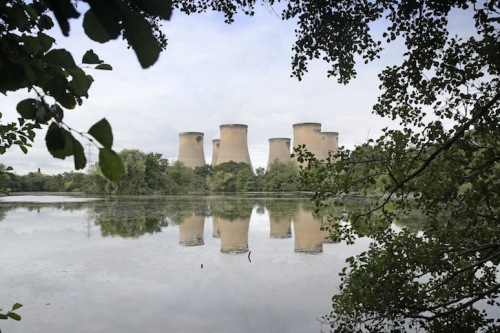‘Robust’ half year results for Drax, despite pandemic’s impact

Drax Group, the listed company which operates Drax Power Station, has reported revenues of £2.2bn for the first six months of this year, a similar figure to the equivalent period last year.
Total operating loss for the six months ended 30 June 2020 was £32m, compared to an operating profit of £34m in the same period last year. And pre-tax losses were £61m, compared to £4m worth of profits last year.
Group Adjusted EBITDA is up 30% to £179m (H1 2019: £138m), which includes an estimated £44m impact of Covid-19, principally within the Group’s Customers SME business.
The business says its overall balance sheet is strong, with cash and total committed facilities of £694m as of 30 June 2020 and net debt of £792m.
As reported last month, Drax confirmed it had completed a three-year extension to the £125m Environmental, Social and Governance (ESG) facility agreement it entered into in July 2019.
The contractual final maturity of the facility is 2025, further extending the profile of Drax’s existing facilities, which include maturities to 2029.
Commenting this morning, Andy Skelton, CFO at Drax, said: “I think these results show how robust the business has been in the first half of the year against the background of the pandemic.
“We’ve seen a 30% growth in our EBITDA for the first half compared to the first half of last year.
“We’ve been working hard to keep our employees safe, we haven’t furloughed any staff and and we have been supporting our customers – many of which are small business struggling with debt.”
Skelton said the pandemic’s financial impact had mostly affected the energy supply side of Drax’s business, with big reductions in demand and increased risk of customer business failure.
But he noted the power station’s supply chains had coped well, even during the height of the Covid-19 lockdown in late March and into April, with the company co-operating closely with the Government and railway operators.
He added Drax had successfully managed to transition its office-based staff to home working, saying this process was continuing to work efficiently.
As reported at the start of July, workers at Drax were gearing up to hold a ballot for strike action over at least 200 proposed redundancies, after rejecting the latest offer from the company.
Drax announced in February that 50 years of coal-fired electricity generation at the North Yorkshire power station would end in March 2021, resulting in a loss of between 206 and 230 jobs.
Skelton said: “Discussions with the unions are still ongoing and we’re making sure we are supporting all employees who will be affected by the end of our coal generation at what is a difficult time for them.
“It is still our plan to stop coal-fired generation in March next year and our biomass strategy is progressing very well. The price of our biomass pellets is down 9% compared to the first half of last year.
“We’re continuing to invest more in carbon capture and carbon storage technology, which will create more jobs in the region.”
Will Gardiner, CEO of Drax Group said: “With these robust half-year results, Drax is delivering for shareholders with an increased dividend while continuing to support our employees, communities and customers during the Covid-19 crisis.
“As well as generating the flexible, reliable and renewable electricity the UK economy needs, we’re delivering against our strategy to reduce the costs of our sustainable biomass and we’re continuing to make progress pioneering world-leading bioenergy with carbon capture technologies, known as BECCS, to deliver negative emissions and help the UK meet its 2050 net zero carbon target.
“National Grid stated this week that the UK can’t reach net zero by 2050 without negative emissions from bioenergy with carbon capture and storage.
“BECCS delivers for the environment and also provides an opportunity to create jobs and clean economic growth in the North and around the country.”








